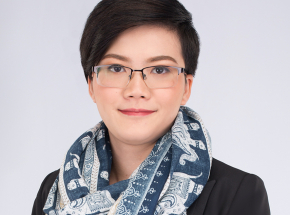- About AUP
- History of AUP
- Mission & Core Values
- Vision and Leadership
- AUP Recognition
- Alumni Success
- Campus Development
- Arts at AUP
- Policies & Guidelines
- Academics
- Undergraduate
- Graduate Programs
- MA in Diplomacy and International Law
- MA in Global Communications
- MSc in Human Rights and Data Science
- MA in International Affairs
- MA in International Affairs, Conflict Resolution, and Civil Society Development
- MSc in International Management
- MSc in Strategic Brand Management
- Find Your Thesis Advisor
- Previous Programs
- Cultural Program
- Faculty
- Summer School
- Research Centers
- The Center for Critical Democracy Studies
- The Center for Writers and Translators
- The George and Irina Schaeffer Center for the Study of Genocide, Human Rights and Conflict Prevention
- The Joy and Edward Frieman Environmental Science Center
- The Center for Media, Communication & Global Change
- Departments
- Academic Resources
- Academic Affairs
- Academic Calendar
- Academic Resource Center
- Library
- Registrar's Office
- Teaching and Learning Center
- Employer Network
- Accessibility & Accommodation Services
- Quai D'Orsay Learning Commons
- Paris as Classroom
- ACE Center
- Admissions
- Student Life
- Campus
- Student Leadership & Involvement
- Paris
- Support Services
- Student Development Help Desk
- Student Accounting Services
- Student Immigration Services
- Student Grievance Procedure
- Diversity and Inclusion
- Health & Well-being
- Digital Student Handbook
- News
- Events
- AUP Giving
- Housing Offer for 2024-2025
- Housing | Spring 2024
- IRIS Project
- IT Services
- Alumni
- About AUP
- History of AUP
- Mission & Core Values
- Vision and Leadership
- AUP Recognition
- Alumni Success
- Campus Development
- Arts at AUP
- Policies & Guidelines
- Academics
- Undergraduate
- Graduate Programs
- MA in Diplomacy and International Law
- MA in Global Communications
- MSc in Human Rights and Data Science
- MA in International Affairs
- MA in International Affairs, Conflict Resolution, and Civil Society Development
- MSc in International Management
- MSc in Strategic Brand Management
- Find Your Thesis Advisor
- Previous Programs
- Cultural Program
- Faculty
- Summer School
- Research Centers
- The Center for Critical Democracy Studies
- The Center for Writers and Translators
- The George and Irina Schaeffer Center for the Study of Genocide, Human Rights and Conflict Prevention
- The Joy and Edward Frieman Environmental Science Center
- The Center for Media, Communication & Global Change
- Departments
- Academic Resources
- Academic Affairs
- Academic Calendar
- Academic Resource Center
- Library
- Registrar's Office
- Teaching and Learning Center
- Employer Network
- Accessibility & Accommodation Services
- Quai D'Orsay Learning Commons
- Paris as Classroom
- ACE Center
- Admissions
- Student Life
- Campus
- Student Leadership & Involvement
- Paris
- Support Services
- Student Development Help Desk
- Student Accounting Services
- Student Immigration Services
- Student Grievance Procedure
- Diversity and Inclusion
- Health & Well-being
- Digital Student Handbook
- News
- Events
- AUP Giving
- Housing Offer for 2024-2025
- Housing | Spring 2024
- IRIS Project
- IT Services
- Alumni
Faculty
Professor Perry
Master’s in Diplomacy and International Law
Related Graduate Programs :
What first brought you to AUP?
I came to AUP 30 years ago to teach a course on politics in China. From the outset, the diverse student population and lively exchange of ideas in the classroom clinched, for me, AUP’s appeal.
You’ve been studying China and East Asia since you were an undergraduate: what initiated your interest in this academic and geographic area?
China was closed to US citizens until 1978. Thus, when Brown University began offering its first courses on China, the country was a novelty, at the cutting edge of regional studies. After graduating from Brown and pursuing further studies at Yale, I was fortunate enough to be selected as a Yale-China Fellow and so spent two years in China in the mid-1980s, just as the country was beginning its experiment with market socialism. My early focus on China as it was opening up has encouraged me to build graduate programs that are atypical and ahead of current trends in education.
What inspired you to found the Master’s in Diplomacy and International Law, after having already created other Politics graduate programs at AUP?
The MA in Diplomacy and International Law is a natural fit for AUP, given our faculty expertise in international affairs. Moreover, my work at Oxford University in International Human Rights Law has led to a partnership that allows our students to earn a certificate in International Human Right Law at Oxford during the summer session.
How did you go about creating the program’s modules and what do you hope they will provide for students?
The modules are designed to bring in technical expertise, so that our students can test theory learned in the classroom against practice in the module. Most of our students pursue careers that directly benefit from their module experience in areas like humanitarian emergencies, microfinance, negotiation, or track two diplomacy.
What are some of the careers for which the Master’s in Diplomacy and International Law prepares students?
Currently, our students are working at international institutions, such as the OECD in Paris; with transnational NGOs, like the Education Development Center; and pursuing law degrees or doctoral studies in the US, the UK and Australia.
Do you ever collaborate with students on research projects, be they theirs or your own?
One of our best examples of student-faculty collaboration has been a five-year research project on human rights and digital technology. AUP graduate students have also served as researchers and fact checkers for our publications, created materials for the European Commission on privacy-by-design, and attended conferences throughout Europe to keep abreast of current issues in this field.
How does the Master’s in Diplomacy and International Law curriculum reflect the theoretical and practical balance needed for a career in law?
The best lawyers are those with vision, particularly students who come from more than one discipline and can confidently cross intellectual boundaries in their thinking. This ability to be at home in more than one intellectual construct makes for careful listening and creative thinking, which are key attributes for a successful law career. Moreover, many of the world’s leading diplomats have received legal training, enabling them to bring the rigorous construct of the law to the subtler game of diplomatic negotiation.
How is this master’s unique in preparing graduates for the fields of diplomacy and law?
AUP’s focus on theory and practice makes this degree unique. Students not only receive rigorous intellectual training but they also delve into modules, the Hague Practicum, and a month at Oxford, where they are able to engage with legal practitioners from a wide range of backgrounds.
Related
-
Alexandra Marin
Paris as Classroom
Read MoreAlexandra Marin
Paris as Classroom
“I know for sure that an international environment is ideal for me.”
-

Visual History Archive
Student & Faculty Collaboration
Read MoreVisual History Archive
Student & Faculty Collaboration
Examine the testimonies of genocide victims to analyze how deterrence functions in wartime.
-

Alex Phuong Nguyen G’12
Alumna
Read MoreAlex Phuong Nguyen G’12
Alumna
"Human rights and data science create a fascinating intersection. My advice for those entering the field is to be adaptable to different kinds of work....

